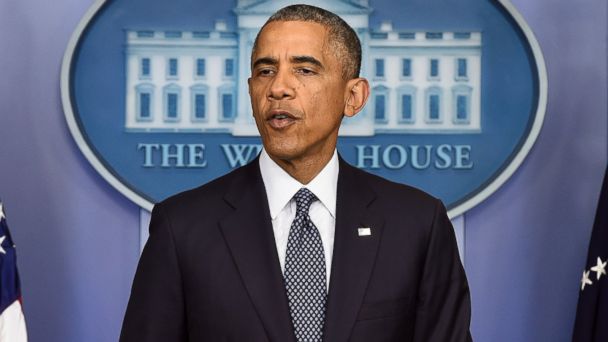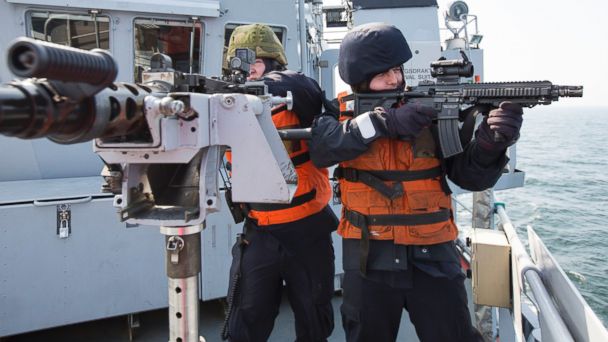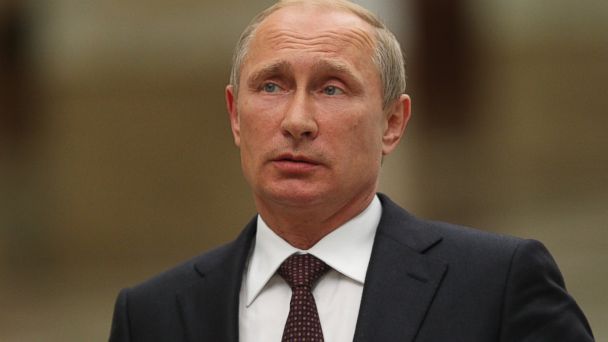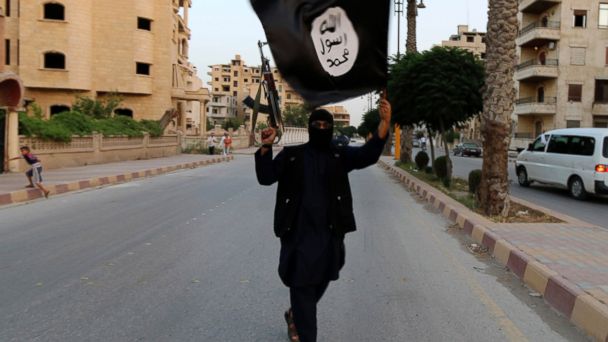4 Things to Watch as Obama Heads to Estonia, NATO Summit in Wales

(Photo Credit: Jewel Samad/AFP/Getty Images)
Can the Obama Doctrine neutralize the Putin Doctrine? Can it quash the terror threat from radical Islamic extremism?
The answers may well depend on President Obama's trip this week to Russia-bordering Estonia and a summit of NATO allies in Wales, perhaps the group's most consequential meeting since the Cold War.
Obama will arrive in Europe Wednesday determined to show that coalition-building and multilateral diplomacy is the best weapon against imminent security threats from a common enemy. So far, the approach has done little to deter Russian incursions into Ukraine, or stunt the rise of Islamic State militants in Syria and Iraq.
"What we are seeing is the old order not working, but the new order not being born yet," Obama told donors at a private fundraiser Friday in New York. "And it is a rocky road through that process, and a dangerous time through that process."
A rocky and dangerous test, as a defiant Russian President Vladimir Putin asserts a right to defend ethnic Russians wherever they are and ISIS militants vow a fight to extend their caliphate across the globe.
As the world watches Obama's huddle with NATO allies, here are four things to look out for:
1. TOUGH TALK FOR PUTIN: 'DON'T MESS WITH' US
Obama kicks off his three-day European swing with a stop on Putin's doorstep in Tallinn, Estonia, a former Soviet Union country and NATO member unnerved by Russia's push into Ukraine. He'll also meet with the presidents of neighboring Latvia and Lithuania.
While there has been no shortage of tough talk about Russia or Putin, look for Obama to be more assertive about the U.S. military commitment to defending NATO allies.
"The message the president will be sending is, 'We stand with you. Article 5 constitutes an ironclad guarantee of your security,'" Charles Kupchan of Obama's National Security Council said. "'Russia, don't even think about messing around in Estonia or in any of the Baltic areas in the same way that you have been messing around in Ukraine.'"
Article 5 of the NATO charter means an attack on one member is treated as an attack on all, a key difference from the crisis in Ukraine, which is not a NATO member.

(Photo Credit: Gero Breloer/AP Photo)
2. NATO RETOOLS ITS MILITARY MIGHT
For NATO, the first major summit since 2012 will be a defining moment. Leaders will agree to modernizing its military might, creating a "spearhead" rapid-response force of 4,000 troops that is nimble and fast, NATO Secretary General Anders Fogh Rasmussen says. It will "travel light, but strike hard" and "deploy at very short notice," within hours.
The White House says the move is aimed specifically at the "hybrid or asymmetric warfare" tactics that the Russians have been using effectively in eastern Ukraine. "Guys coming across in masks, you don't know who they are" have become the most urgent concern, as opposed to trundling armored columns "which you can normally see in advance," official said.
NATO is also for the first time prepared to deploy forces at new military installations along Russia's western border; what Rasmussen calls "reception facilities." These would be bases in Poland, Lithuania, Estonia and Latvia to host NATO troops pretty much all the time, administration officials say, though the nationality of the units and composition will rotate.
Also look for the alliance to announce new financial support for Ukraine's military, including logistics, command and control systems and cyberdefense, even if NATO cannot and will not deploy forces in Ukraine, officials said.

(Photo Credit: Sasha Mordovets/Getty Images)
3. NOT INVITED: HOW WILL PUTIN RESPOND?
Putin wasn't invited to the NATO summit, but he will still be the center of attention for 67 heads of state and government assembled in Wales. Obama administration officials say NATO's military posturing is more protective than provocative, but what may matter more is how Putin perceives it.
He has been defiant after months of Western condemnation and economic sanctions over Russian intervention in Ukraine. He reportedly boasted to some European leaders Saturday that, "If I want, I can take Kiev in two weeks," according to Italy's La Repubblica newspaper.
Will talk of yet another round of U.S. and European sanctions influence Russia's plan in Ukraine? Will NATO's new "spearhead" force be a deterrent?
"I am sure the reaction will be strong. It will probably, again, provoke the additional force; Russian forces along in this area, so we will see a buildup on both sides," Heather Conley of the Center for Strategic and International Studies said. "There are Cold War elements of it, and this is going to be one of them, where you will see a response, but we have to react to the instability, and quite frankly, it ensures stability."

(Photo Credit: Reuters)
4. STILL 'NO STRATEGY'? OBAMA'S PLAN TO FIGHT ISIS IN SYRIA
President Obama says "strong regional partnerships" are the cornerstone of any comprehensive strategy to confront Islamic State militants in Iraq and Syria, and this week he will have a face-to-face opportunity to shore up an international coalition.
But will allies like the U.K.'s David Cameron press him to do more, and fast?
Obama arrives in Great Britain with a national terror alert at its highest level in five years on account of the threat from ISIS.
Cameron Monday declared ISIS a "direct threat to every European country," calling for a "firm security response with a military action to go after terrorists."
Obama, by contrast, has said ISIS is merely "an immediate threat to the people of Iraq and to people throughout the region."
"Rooting out a cancer like ISIL will not be quick or easy, but I'm confident that we can and we will, working closely with our allies and our partners," he said in a measured statement before Labor Day.
Administration officials say the NATO summit will include discussions on possible engagement in the "Iraq and Syrian theater." Look for what concrete military commitments and strategies may emerge.

(Photo Credit: Cpl. Phil Major/RAF/AP Photo)